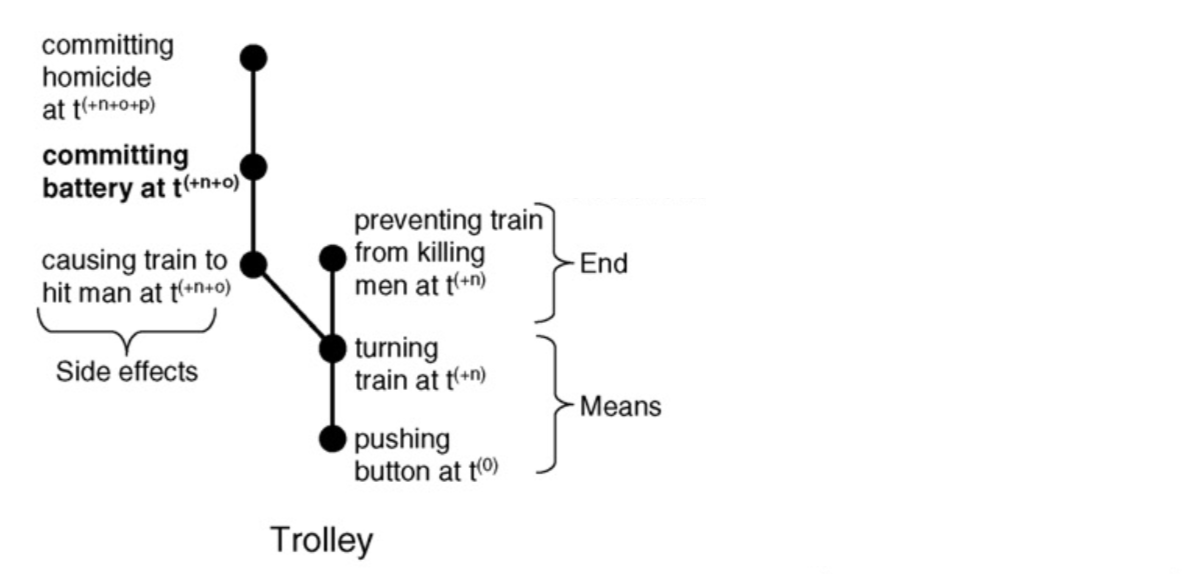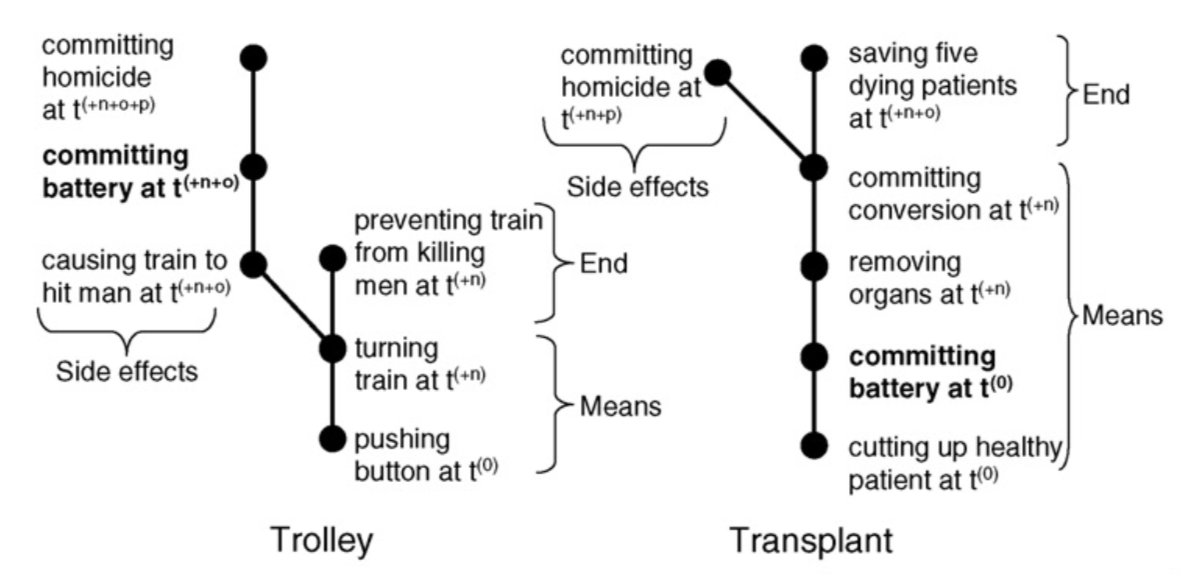Click here and press the right key for the next slide.
(This may not work on mobile or ipad. You can try using chrome or firefox, but even that may fail. Sorry.)
also ...
Press the left key to go backwards (or swipe right)
Press n to toggle whether notes are shown (or add '?notes' to the url before the #)
Press m or double tap to slide thumbnails (menu)
Press ? at any time to show the keyboard shortcuts
A Linguistic Analogy
previously: a hypothesis about the Affect Heuristic
now: a radically opposed hypothesis
moral intuitions
‘the central phenomena are moral emotions and intuitions.’
(Haidt, 2008, p. 65)
Q2 What do humans compute that enables them to track moral attributes?
Q1 How, if at all, do emotions influence moral intutions?
linguistic intuitions
Which is a sentence?
[1] Many more people have been to Paris than I have.
[2] Many more Paris than have to been people I have.
moral intuitions
‘the central phenomena are moral emotions and intuitions.’
(Haidt, 2008, p. 65)
Q2 What do humans compute that enables them to track moral attributes?
Q1 How, if at all, do emotions influence moral intutions?
linguistic intuitions
‘the central phenomena are moral emotions and intuitions.’
(Haidt, 2008, p. 65)
Q2 What do humans compute that enables them to track linguistic attributes?
Standard Answer: the linguistic attributes themselves, irrespective of whether they can articulate truths about them.
How could linguistic intutions involve computing linguistic attributes if we are entirely unable to articulate even basic facts about them—and are even often wrong about them?
moral intuition
‘the mind contains a moral grammar: a complex and possibly domain-specific set of rules [...] this system enables individuals to determine the deontic status of an infinite variety of acts and omissions’
(Mikhail, 2007, p. 144)
linguistic intuition
linguistic competence involves a special-purpose module
which operates according to linguistic rules
Note: a the linguistic analogy
What evidence might indicate that humans have a language ethics module?
dumbfounding (Dwyer, 2009)
resistance to revisability
structure implicit in moral intuitions (Mikhail, 2014)
Do humans have a language ethics module?
1. ‘adequately specifying the kinds of harm that humans intuitively grasp requires a technical legal vocabulary’
therefore:
2. The abilities underpinning unreflective ethical judgements involve analysis in accordance with rules.
Mikhail, 2007
Trolley
A runaway trolley is about to run over and kill five people. You can hit a switch that will divert the trolley onto a different set of tracks where it will kill only one.
Is it okay to hit the switch?
Trolley
A runaway trolley is about to run over and kill five people. You can hit a switch that will divert the trolley onto a different set of tracks where it will kill only one.
Is it okay to hit the switch?
Transplant
Five people are going to die but you can save them all by cutting up one healthy person and distributing her organs.
Is it ok to cut her up?
Why do people respond differently?
Mikhail, 2007; 2014: because one involves purposive battery

Mikhail, 2007 figure 1d (part)

Mikhail, 2007 figure 1d

Mikhail, 2014 table 2
Mikhail’s theses:
The contrasts make sense from a legal point of view,
so there is no need to suppose incompatible ethical principles are applied.
Our intuitions conform to legal distinctions (purposive battery).
Do humans have a language ethics module?
1. ‘adequately specifying the kinds of harm that humans intuitively grasp requires a technical legal vocabulary’
Therefore:
2. The abilities underpinning unreflective ethical judgements involve analysis in accordance with rules.
Mikhail, 2007
puzzle
Why do patterns in humans’ moral intutions reflect legal principles they are unaware of?
What evidence might indicate that humans have a language ethics module?
dumbfounding
resistance to revisability
structure implicit in moral intuitions
language
linguistic competence involves a special-purpose module
which operates according to linguistic rules
ethics
‘the mind contains a moral grammar: a complex and possibly domain-specific set of rules [...] this system enables individuals to determine the deontic status of an infinite variety of acts and omissions’
Mikhail, 2007 p. 144
Affect Heuristic
Linguistic Analogy
Q2 What do humans compute that enables them to track moral attributes?
their felt responses to situations
moral attributes themselves
Q1 How, if at all, do emotions influence moral intutions?
Moral intuitions are entirely determined by emotions.
Emotions do not influence moral intuitions at all.
fun fact: the evidence conficts with both views
puzzle
Why do feelings of disgust sometimes influence moral intuitions?
(And why do we feel disgust in response to moral transgressions?)
puzzle
Why do patterns in moral intuitions reflect legal principles humans are typically unaware of?